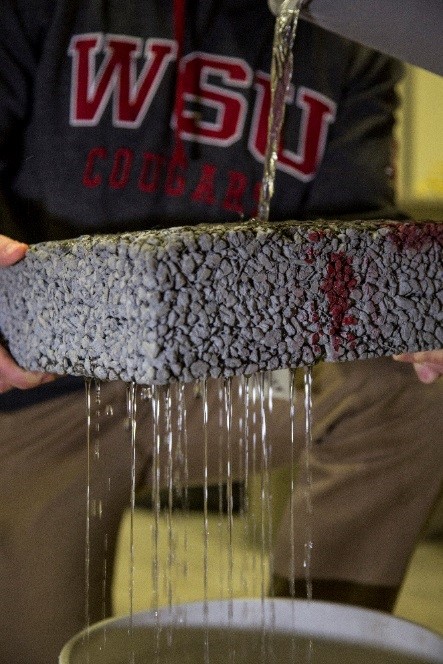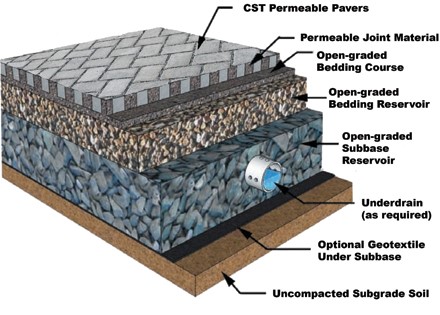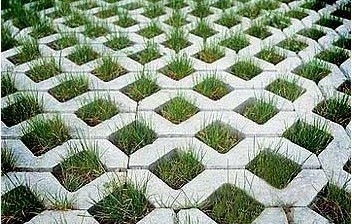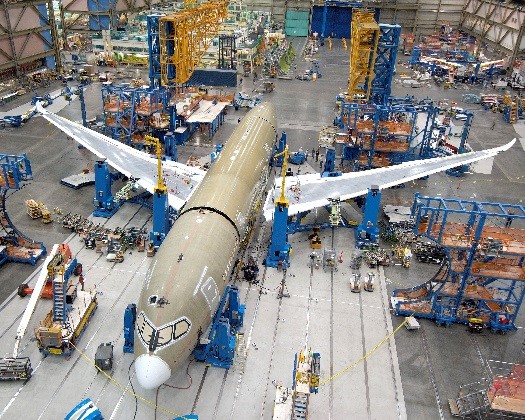-
January 21, 2016
PacTrans Researchers Works on Recycling Scrap Fiber into Permeable Pavements Sponsored by Boeing
In his paper titled, Paving Paradise: The Peril of Impervious Surfaces, Lance Frazer eloquently articulates just how much of our country consists of impervious surfaces: “In the United States alone, pavements and other impervious surfaces cover more than 43,000 square miles—an area nearly the size of Ohio.” He then goes on to discuss the implications of this reality to both us as humans and our environment. One remedy to slow the rate at which we convert our permeable surfaces to impermeable surfaces is called permeable pavement.
In one hand, permeable pavements are a viable solution to improve water quality and more efficiently recharging ground water by directing storm water to infiltrate into underground soils. The durability of permeable pavement, however, is a concern. This is why current utilization of permeable pavements has, thus far, been generally reserved for parking spaces and low use roadways like single family home driveways.
On the other hand, Carbon fiber reinforced composites are current used in over half of the body of modern aircrafts, such as Boeing 787 Dreamliner. Unavoidably, scrap carbon fiber presents an issue for manufacturers like Boeing, because it needs to be properly disposed of.
Boeing believes it has an idea that, if proven feasible, could be a win-win. They are sponsoring a study to test whether recycling its scrap carbon fiber to strengthen the permeable pavement is feasible. They are supporting the study through a $212,000 research grant and donation of the necessary cured carbon fiber composite material for the project.
Researchers selected for the project include: PacTrans researchers, Dr. Haifang Wen, Dr. Liv Haselbach, and Dr. Somayeh Nassiri of Washington State University’s Department of Civil and Environmental Engineering; collaborating with Dr. Karl Englund of the Composite Material Engineering Center, and Dr. John Stark of the Washington Stormwater Center. Dr. Wen is currently in the spotlight of concrete researchers as one of his recent projects, “Evaluation of Recycled Concrete as Aggregate in New Concrete Pavements,” lead the Washington State Legislature to pass Bill 1695, which calls for the use of recycled concrete in future building project.
Check back with us to see what they find.






